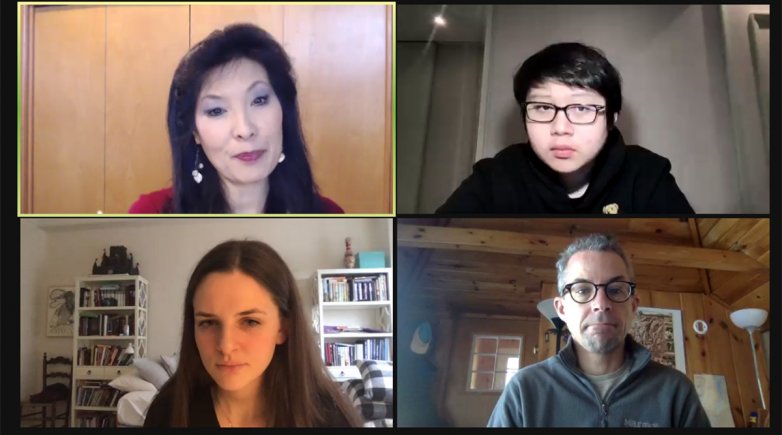WuDunn: 'Humanitarian crisis' in America's backyard
Pulitzer Prize-winning journalist's assembly discusses book that explores nation's "unraveling" working class.
Sheryl WuDunn and her writing partner and husband, Nicholas Kristof, have written about some of the worst outrages against humankind in the past half-century, from the Chinese government’s murderous crackdown of protests in Tiananmen Square to the genocide in Darfur.
One of the most wrenching stories they’ve had to tell, however, is the human tragedy unfolding across America.
WuDunn spoke to Exeter students Tuesday about that tragedy that she and Kristoff explore in their latest book, Tightrope: Americans Reaching for Hope (Knopf, January 2020). The book takes readers on a misery tour of what the authors claim is the forgotten America, the country left behind by policymakers and afflicted by an apathy for the less fortunate.
“This is a book we never anticipated writing,” she told the students in a Zoom webinar presentation. “A humanitarian crisis in our own backyard.”
The trigger was their return to Kristof’s hometown in rural Oregon. WuDunn and Kristof found a town ravaged by low wages and high unemployment, homelessness, alcoholism and drug abuse. The authors use the school bus which Kristof rode to school as the literary vehicle to propel their tale: One in four children who rode the No. 6 bus to Yamhill, Oregon, schools in the 1970s is dead today, including all five Knapps, Kristof’s childhood neighbors.
“Of the two boys that Nick walked to the bus stop with each day, Mike is a homeless alcoholic living in a park, and Bobby is serving a life sentence in prison for offenses so harrowing that the family has cut him off,” they write.
